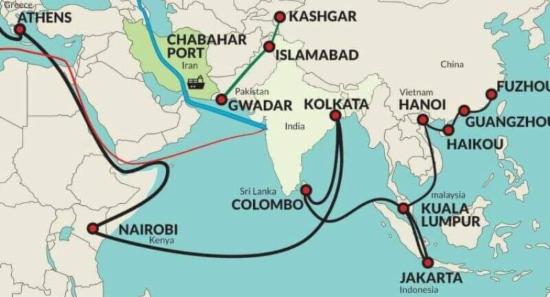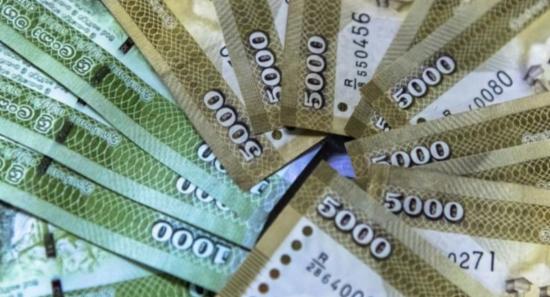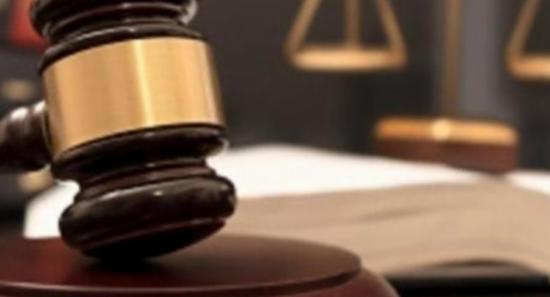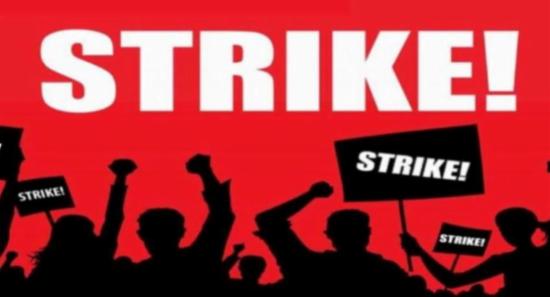.webp)
-715585.jpg)
UPDATE: Senior Pakistani ministers slam President for 'interfering' and setting dates for early elections
Colombo (News 1st) - Several senior Pakistani ministers criticized President Arif Alvi on Tuesday (21st) for unilaterally setting a date for elections in two of the country's four provinces, accusing him of acting on behalf of ousted Prime Minister Imran Khan who is pushing for both provincial and national elections, foreign media reported
President Arif Alvi on Tuesday (21st) unilaterally set a date for elections, after the Elections Commission of Pakistan failed to set a date following refusals by the Finance Ministry to provide funds for the election, and the Defense Ministry refused to provide security for the polls, foreign media reported. The Minister of the Interior, Minister of Defense, and Minister of Law in separate statements condemned the president's action.
"The president has nothing to do with announcing the election date. Arif Alavi should act as president of Pakistan. You should not act as Imran Khan's spokesperson," Interior Minister Rana Sanaullah told the Express Tribune.
Defense Minister Khawaja Asif tweeted: "Mr. Arif Alvi, stay within your constitutional limits. Don't do politics. If not your own, think about the honor of your position."
Law and Justice Minister Azam Nazeer Tarar added that the constitution did not authorize the president to set dates for provincial assembly elections.
The Elections Commission of Pakistan says it needs 15 billion Pakistani rupees (USD 57 million) for the two provincial elections, which apparently the Finance Ministry is reluctant to provide.
The Pakistani government is in deep financial trouble as it is heavily in debt to China and other global lenders, and has sought an emergency bailout from the International Monetary Fund (IMF). Skyrocketing inflation caused by financial instability has caused deep political instability.
The dramatic and unprecedented decision is the latest escalation of the power struggle between deposed Prime Minister Imran Khan's hardline Pakistan Tehreek-e-Insaf (PTI) party and current Prime Minister Shehbaz Sharif's moderate Pakistan Muslim League (PML-N). Khan, a global cricket star turned politician, was Prime Minister from 2018-2022, but was removed from office by a no-confidence motion in parliament last April and replaced by Sharif. Khan survived an assassination attempt last November.
President Arif Alvi is a senior leader of Khan's PTI party. Under Pakistan's system of governance, the President is the ceremonial head of state with limited powers that include command of the armed forces, while the Prime Minister is the executive head of government.
Khan is attempting to win both provincial elections and force Prime Minister Shehbaz Sharif to dissolve the nation's parliament and call early parliamentary elections, which Khan hopes to win. PM Sharif's party is widely seen as attempting to delay or block provincial elections, in order to stay in power nationally.
Pakistan has four provinces, two smaller 'disputed territories', and a federal territory in which the capital Islamabad is located. Punjab is Pakistan's largest province with 110 million of the country's 214 million population (2017 estimate). Khyber Pakhtunkhwa in the country's northwest has 35 million people and is the third largest province.
Both provincial assemblies were earlier controlled by Khan's party. The Punjab Provincial Assembly was dissolved on January 14, 2023, and the Khyber Pakhtunkhwa Provincial Assembly was dissolved on January 18 2023 by their respective provincial governors at the requests of their Chief Ministers, who are members of Khan's party.
The Elections Commission of Pakistan is required by the constitution to fix election dates for the two provinces within 90 days of their assemblies being dissolved. However, although 90 days have not lapsed, the failure of the Finance and Defense Ministries to facilitate the holding of provincial elections led to fears that elections would not be held. Hence, the move by the President to set the election date himself, using powers he claims he has through the constitution.
However, the Elections Commission of Pakistan immediately responded that it would seek the advice of the Attorney General of Pakistan to possibly fight the President's decision in court, which would pave the way for the Supreme Court of Pakistan to have the final say.
Other Articles
Featured News





.png )
-755293_550x300.jpg)






-755072_550x300.jpg)
-754036-755060_550x300.jpg)



.gif)








.webp)






